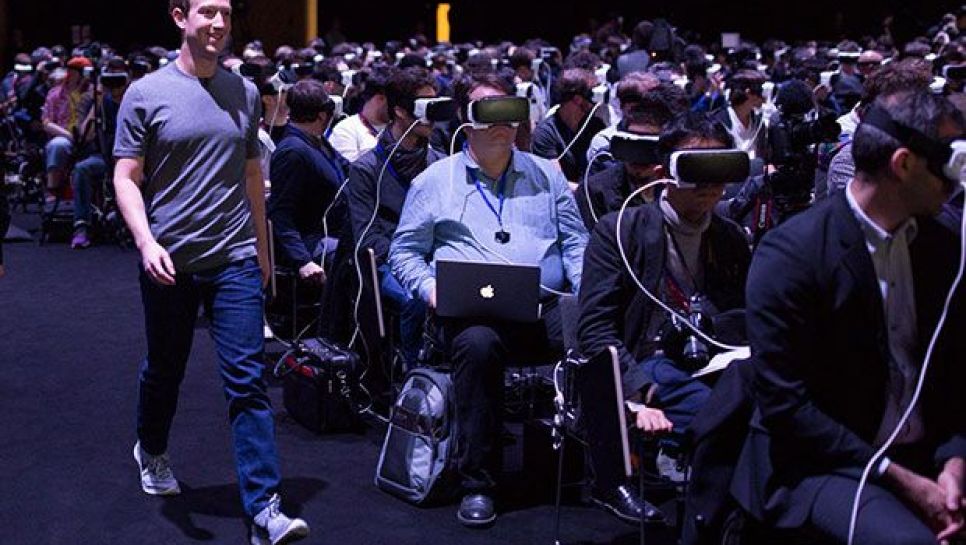
Whereas his comrades -Jeff Bezos and Elon Musk- amongst other tech CEO’s are working towards an outer space expansion, trading our earthly reality with one that would involve colonizing mars and eventually roaming our way into the multiverse. The Facebook founder Mark Zuckerberg has his mind set on creating a whole new virtual reality, the metaverse: some kind of escape, an alternative to the one we’re already experiencing. It is, in his opinion, a means to reinforce social connections and develop our economics.
But is it that simple?
You see, set in a box where Zoom, Netflix, Classroom and social media were our only companions, us students and the majority of people worldwide during these two years of quarantine would highly disagree on the impact of this said “virtual world” on our social bonds with our peers. It is becoming draining, exhausting and immensely hard to socialize when there is no screen or keyboard involved, let alone when an avatar will allow us to move, talk and approach life in a less anxiety-triggering method.
Furthermore, Facebook has already had a history of ignored and overlooked harassment and cyberbullying throughout the years, now imagine that same hatred but on a larger, more direct platform, where an avatar -or many- stand 2 feet away from you, screaming at you and/or tormenting you for whatever reason they deem fitting. It is not the same thing as a Facebook comment section. The metaverse is a wider platform, where anyone can log in and do whatever they want, there are no rules, no ethics or morals to bind them, you can’t defend yourself, you can’t guarantee neither your mental nor physical wellbeing.
We are today, considering the outcome of a platform, that will be permitted access to our data, location and privacy yet won’t grant us a safe, secure browsing from trolls and bullies. It is, in fact a virtual reality, but the consequences would be very much real.
“This imaginary place is known as the metaverse” (Neal Stephenson)
To understand it a bit more, let’s dive back into the roots of the term itself. Meta (meaning beyond in ancient Greek), a name chosen for the doorway to the metaverse, draws its origins back to the 1990’s, precisely from Neal Stephenson’s sci-fi novel Snow Crash: the story, set in a dystopian, cyberpunk United states, where the global economy has collapsed, and the world is overrun by violence and poverty. The governments have lost all authority to corporate entities, the rich thrive behind their blended fortresses, while the commoners die in the streets. Chaos reigns, hence, it is, from an objective point of view, a reality that is not far from ours.
Thus, in Snow Crash, the metaverse came to the rescue
The protagonist of the narrative, Hiro, a delivery worker who lives in utter poverty finds comfort in this virtual world: the metaverse, that allows him to gain some more money to survive in this post-apocalyptic community while also fighting evil and living through the skin of a “warrior prince”.
The world Neal has portrayed 30 years ago, is one controlled through an algorithm, the wealthy, the elite, a minority of extremely literate people, who have access to the metaverse stand like gods on top of the hierarchy pyramid, pulling the strings and dictating the faith of the disfavored majority- a state that can easily be reincarnated through the lords of silicon valley, and us, the unfortunate population who doesn’t go on space balades or create a new way of escapism when bored.
If all of these similarities -still- did not creep you out, then a little cinematic tour definitely would. For that, the concept of virtual reality has been invoked in many movies and tv shows throughout the years: The Matrix, Ready Player One, Other Life, Ultimate Game and Black Mirror amongst many others predicted the aftermath of abandoning the real world in favor of an imaginary, escapist and fully consumerist-oriented one.
Spoiler: it never ends well
Lastly, addressing Mark Zuckerberg and his brethren CEO’s, I ask: wouldn’t it be more reasonable, ethical and probably fiscal to fix the gaps in this reality, to make it more appealing, instead of knitting a glitch-prone one and another one on the red planet? Why create solutions for problems that we do not have, while ignoring the urgent enigmas that have been knocking on our doors for ages now? Or is there a race towards a dystopic future that we are simply not aware of?
We would have definitely expected more from the masterminds, elite billionaires who rule the modern world.
Kamilia AYAD
(Partenariat "LIBERTÉ-Digital"/"Charrette-club")






